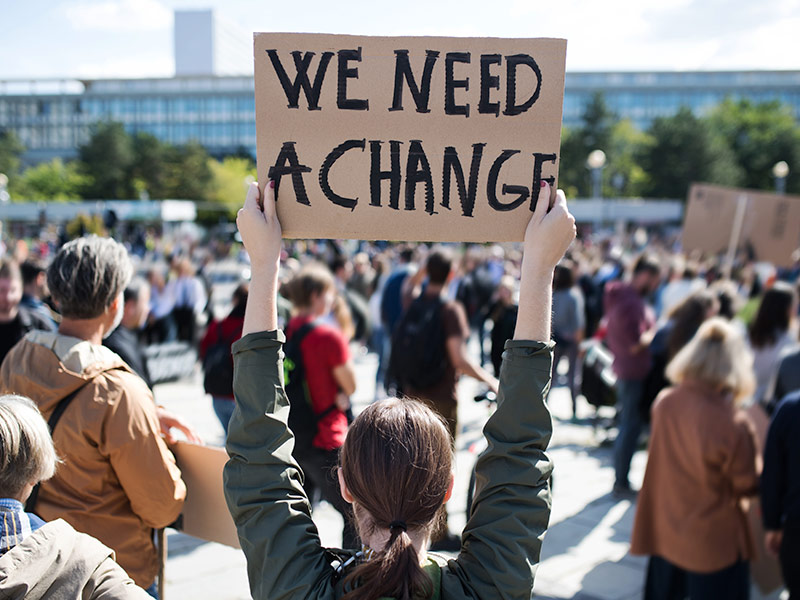Introduction
The UN Human Rights Council endorsed the UN Guiding Principles on Business and Human Rights (UNGPs) 10 years ago. Since then, the UNGPs have been used by a growing number of global companies, integrated into the Organization for Economic Cooperation and Development (OECD) Guidelines for Multinational Enterprises, and referred to by governments, investors, and civil society organizations everywhere.
At BSR, we have learned a great deal by helping companies implement the UNGPs in practice. Our methods have evolved with each company engagement, and we have been struck by how often referring to the precise text of the UNGPs helps identify how we may improve our approaches for the next project. Ten years later, we are still learning, and that is a testament to the richness of the UNGPs.
The three UNGP pillars of “state duty to protect,” “corporate responsibility to respect,” and “access to remedy” have provided much-needed clarity for our work with companies, providing clear direction for company action to address adverse human rights impacts.
However, we believe that a step change in the interpretation of these three pillars is needed to more effectively prevent human rights violations associated with business activities and secure the wider enjoyment of human rights.
Specifically, we believe that the business and human rights field will benefit from a framework for the enjoyment, realization, and fulfillment of human rights—a shared opportunity to promote human rights—that moves beyond a perception that the UNGPs’ three pillars are solely about avoiding harm.
Based on the premise that the absence of action to promote human rights presents very severe risks to their fulfillment, this paper draws upon BSR experience over the past decade to propose a framework for the shared promotion of human rights.
We view the promotion of human rights to be a key part of fulfilling the corporate responsibility to respect human rights.
We believe that the business and human rights field will benefit from a framework for the enjoyment, realization, and fulfillment of human rights—a shared opportunity to promote human rights—that moves beyond a perception that the UNGPs’ three pillars are solely about avoiding harm.
Rationale
BSR’s recommendations to companies in every human rights engagement are grounded in the UNGPs. However, over the past decade we have noted that the role of the company in taking actions that promote the enjoyment, realization, and fulfillment of human rights is an area where we have needed to chart our own path more than most. We think that promoting human rights is an essential role that companies can play, both alone and in collaboration with other actors, but also one where the business and human rights field would benefit from clearer frameworks.
The rationale for the proposed framework is grounded in our desire to see human rights realized in law and in practice. We live in a world where rule of law, accountability, and civic freedoms are increasingly under attack, where climate change and pandemics present systemic challenges, and where existential questions about the relationship between technology and humans urgently require rights-respecting resolutions. This is a context where the absence of action to promote human rights presents severe risks to them, and it is this connection—between promotion and risk—that is prompting our desire to establish further guidance on how companies can play a more complete, strategic, and impactful role.
Our proposed framework is intended to provide structure, direction, and guidance for the opportunity companies have—through their operations, products, services, and relationships—to significantly enhance, realize, and advocate for the enjoyment of human rights.
If companies are to effectively embrace the opportunity to promote human rights, it needs to be undertaken in a manner that is legitimate, accountable, and based upon international human rights standards. It needs to be principles based, not opportunistic; consistent, not ad hoc; and grounded in a desire to see rights realized in law and in practice, not solely in brand value, reputation, or revenue growth.
It is important to emphasize that a framework for promoting human rights is intended to realize the implementation of the three pillars of the UNGPs through more proactive and ambitious approaches. Principle 11 of the UNGPs states that companies should avoid infringing on the human rights of others and should address adverse human rights impacts with which they are involved, and we believe this remains central. Principle 11 also states that company commitments or activities that contribute to the enjoyment of human rights does not offset a failure to respect human rights throughout their operations, and we believe this to be irrevocable.
Our proposed framework is intended to provide structure, direction, and guidance for the opportunity companies have—through their operations, products, services, and relationships—to significantly enhance, realize, and advocate for the enjoyment of human rights.
Foundational Principles
Expand each principle to learn more.
Companies avoiding adverse human rights impacts and addressing those with which they are involved is a necessary but insufficient condition for the realization of human rights in law and in practice. There are a wide range of affirmative, positive, and proactive actions that companies can take to advance the enjoyment of human rights, especially in contexts where rights are less likely to be respected and where there are a large number of individuals from vulnerable groups or marginalized populations.
The ability of companies to promote the fulfillment of human rights can be enhanced by working in partnership with others, such as civil society organizations, state-based entities, investors, academics, and other business enterprises—including both customers and suppliers—in the company’s value chain.
While states, business enterprises, and other organizations may cause or contribute to individual adverse human rights impacts, these harms take place in the context of entire systems. Across the world, institutions, structures, and organizations exist that are based on deep-rooted racial, gender, and political discrimination; these shape the context within which human rights harms occur. These systems need to be reformed if we are to sustain the realization of human rights over the long term. Business enterprises should understand their role in these enabling systems and their connection to broader efforts to achieve meaningful, positive reforms.
Rule of law, governance structures that enable accountability, and the presence of rights-based laws and regulations have relevance for system-wide change and merit special attention by business enterprises. Companies can identify the influence they have to effect change in these systems and increase their leverage, impact, and legitimacy by collaborating with other actors. This is especially relevant in fragile and conflict-affected contexts, where companies and other actors can assume a shared responsibility to address the multiple and intertwined causes of conflict and human rights violations in combination, thereby increasing the likelihood of beneficial outcomes for everyone.
The importance of system-wide solutions is illustrated by three critical and far-reaching global challenges with significant relevance for the actual and potential human rights impacts of companies: climate change, the governance of powerful new technologies, and the establishment of healthcare systems that recognize interdependence of the human family everywhere. In each of these cases, long-term solutions require the collaboration of multiple entities, attention to individuals from groups or populations that may be at heightened risk of becoming vulnerable or marginalized, and the creation of rights-based frameworks.
The realization of human rights can only be achieved if conditions are created whereby everyone is able to enjoy economic, social, and cultural rights. By creating new products, services, and technologies, companies can establish additional economic, social, and cultural opportunities for people and promote the progressive realization of these rights. However, rights-based approaches imply a deliberate effort to maximize the likelihood that these opportunities will support human dignity, autonomy, and self-determination, especially for the most vulnerable.
Business enterprises also can assist in the fulfillment of human rights through their employment activities as well as those of their suppliers and business partners. Paying attention to living wages, economic security, sustainable livelihoods, skills development, and the social safety net can help rightsholders realize a decent standard of living adequate for health and well-being.
Operational Principles
Expand each principle to learn more.
Human rights are more likely to be fulfilled when two conditions are present: when government policies, laws, and regulations—and their implementation—are rights-protective, rights-respecting, and rights-enhancing, and when there is space for civil society to operate effectively. Business has the leverage to support both outcomes.
In this context, it is important for a company’s public policy agenda to be consistent with, and to not undermine, human rights objectives. Indeed, advocacy in opposition to policies, laws, and regulations intended to protect human rights may violate a company’s responsibility to respect human rights set out in the UNGPs.
However, consistency between a company’s public policy agenda and human rights is only a first step. The shared opportunity to promote human rights implies the identification of public policy, government affairs, and regulatory activities that can increase the likelihood of a rights-respecting and rights-enhancing operating context for business and thereby make it easier for companies to achieve their responsibility to respect human rights. This might include advocating for rule of law, accountable governance, and civic freedoms that collectively establish the space in which everyone is able to enjoy their human rights. Recognizing there are risks and downsides of excessive private sector influence over public policy, collaboration with other actors, including civil society organizations and other credible stakeholders, on a shared rights-based agenda may be essential for establishing legitimacy.
Business enterprises maintain relationships with many rightsholders, including employees, members of the local community, customers, users, and workers at company suppliers. The realization of human rights is enhanced when these rightsholders can participate in decisions that affect their rights and are empowered to do so by possessing a good understanding of both their risks and their rights. This is especially true for individuals from groups or populations that may be at heightened risk of becoming vulnerable or marginalized.
Companies are often in a powerful position in relation to these rightsholders, and their actions can tip the balance between rights being fulfilled and rights being violated. Companies can help address this power imbalance by providing rightsholders with the knowledge, insights, and resources to understand how their rights may be adversely impacted by company activities and what to do when they are, and by supporting activities designed to empower rightsholders. Principle 31 of the UNGPs on effectiveness criteria for non-judicial grievance mechanisms is especially relevant here.
When companies identify and assess their actual and potential adverse impacts on human rights in accordance with Principle 18 of the UNGPs, they often discover human rights risks that are similar to other companies operating in the same context or that cannot be addressed by a single company acting alone. This is especially the case where adverse human rights impacts occur in the context of a history of conflict, systemic racism, gender-based discrimination, politically inspired oppression, or high levels of economic inequality.
In these circumstances, participation in multistakeholder initiatives can both enhance the legitimacy of company action and increase the likelihood of success. Multistakeholder initiatives can address entire systems in ways that single companies cannot, and they can address the findings of human rights assessments in a more strategic, impactful, and effective manner.
The growing role of the private sector in the global economy—such as providing access to essential goods and services, creating jobs, and shaping the future of work—highlights the need for companies to embed the fulfillment of human rights more deliberately into their business models and strategies.
When developing new services, solutions, and technologies, companies can support the realization and enjoyment of human rights by directly engaging rightsholders and intended beneficiaries, especially those most vulnerable, into their product design, development, and deployment processes and by using the UN Sustainable Development Goals as an inspiration for innovation. This way, companies can deliberately seek to serve unmet needs through the intentional development of commercially viable, rights-respecting, and inclusive business models that foster opportunity, expand access, and improve lives for everyone.
Companies, governments, and civil society should pay particular attention to maintaining relationships between individuals and institutions that promote skill development and career pathways, achieve sustainable livelihoods, and contribute to the strengthening of a social safety net that ensures economic security for all.
Ultimately, business strategies that focus on creating, measuring, and communicating long-term value for all stakeholders are more likely to support an environment in which human rights are enjoyed, realized, and fulfilled.
For many business enterprises, their potential adverse human rights impacts are likely to change over time as the world evolves around them. Whether it is climate change, shifting geopolitics, or sudden public health emergencies, companies become involved in adverse or positive human rights impacts in a constantly evolving and dynamic context with uncertain trajectories. This means that the role of companies and other organizations addressing human rights impacts will also change over time.
For this reason, companies involved in addressing human rights impacts should seek to understand different plausible future scenarios and prepare for them. This should involve identifying scenarios that bring positive or negative implications for human rights and working both independently and in partnership with others to generate more positive outcomes for the realization, fulfillment, and enjoyment of human rights. In this regard, companies can learn from emerging scenario-based methods being deployed to address risks and opportunities related to the impacts of climate change.
The absence of action to promote human rights presents severe risks to them.
Let’s talk about how BSR can help you to transform your business and achieve your sustainability goals.
You Might Also Like







